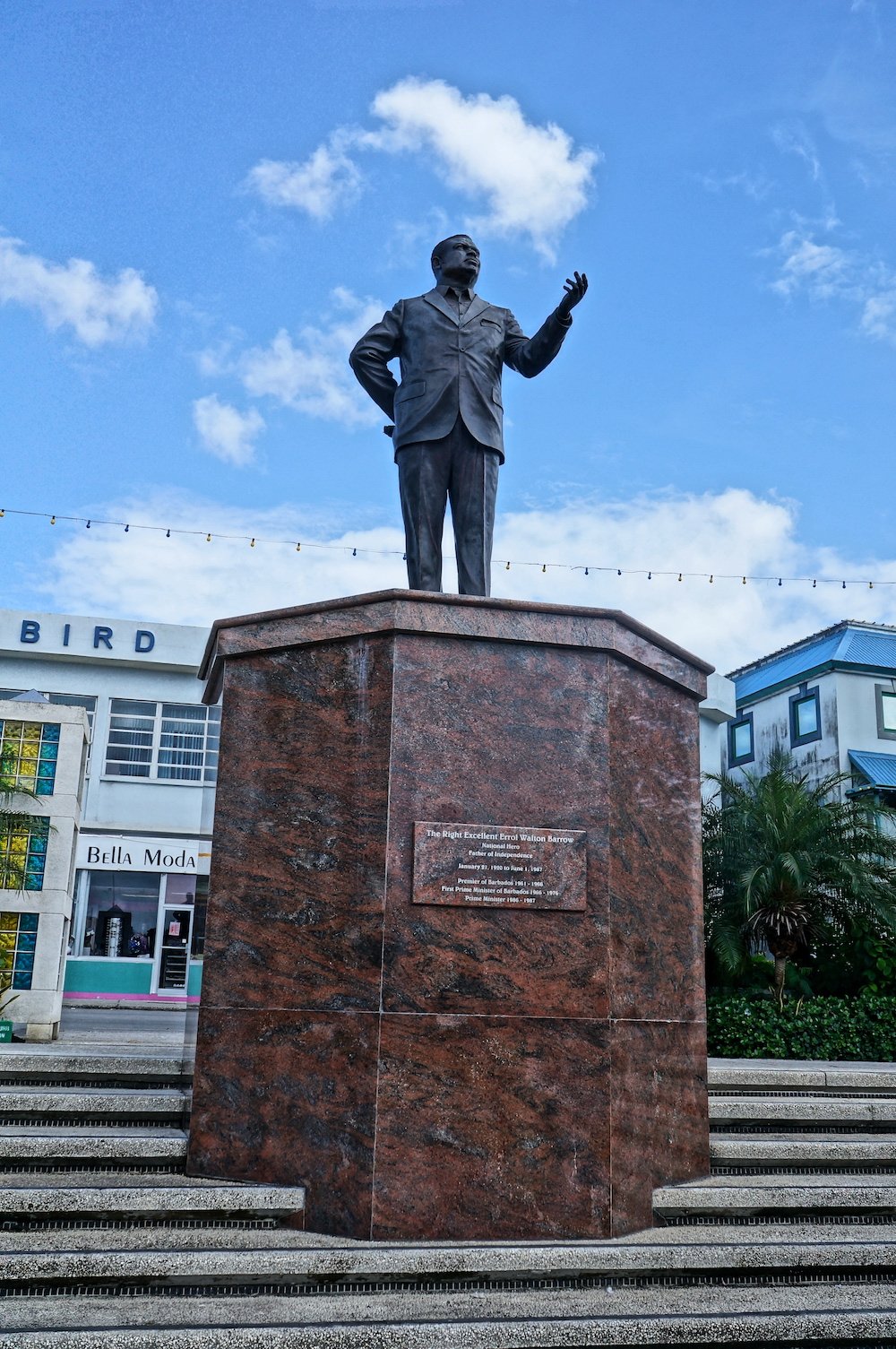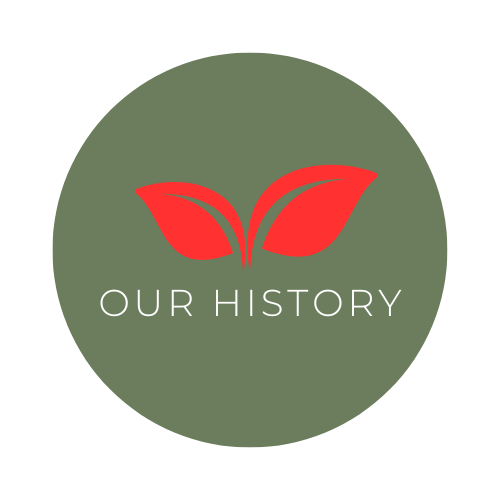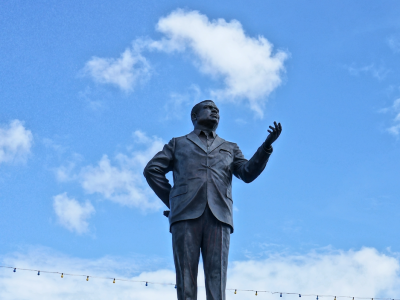From the skies of wartime Europe to the helm of a developing nation, the journey of Errol Walton Barrow, the ‘Father of Independence’ of Barbados, is a tale of resilience, vision, and unwavering leadership. His life, woven into the fabric of Barbadian identity, exemplifies a relentless pursuit of freedom, equality, and prosperity for his people.
Early life: A foundation of excellence
Born on 21 January 1920 in Saint Lucy, Barbados, Barrow was the son of the Reverent Reginald Grant Barrow and Ruth O’Neal. Growing up in a family that valued education and public service, young Errol received his early education at Wesley Hall Boys’ School and The Combermere School. His formative years were marked by a keen intellect and a growing awareness of the socio-political realities of his time.
Barrow’s pursuit of higher education took him to Codrington College and later, on a scholarship, to Harrison College in Bridgetown. During these years, the seeds of his political consciousness were sown as he navigated the colonial educational system that was both a gateway to opportunity and a reminder of the island’s subjugation.
The war years: Bravery in the skies
The outbreak of World War II saw a young Errol Walton Barrow transitioning from academia to the theatres of war. In 1940, he joined the Royal Air Force (RAF), becoming one of the few Caribbean individuals to serve in this capacity. His service as a Flight Lieutenant, navigating the hazardous skies over Europe, was not just a battle against the Axis powers but also a fight against the racial prejudices of the era.
Barrow’s time in the RAF was a crucible that tempered his resolve and expanded his worldview. The camaraderie and shared struggles with fellow servicemen from diverse backgrounds reinforced his belief in the principles of equality and self-determination, principles that would later become cornerstones of his political philosophy.
Political career: The path to independence

(White House Naval Photographic Unit, CC BY 3.0, via Wikimedia Commons)
Returning to Barbados in 1949, Barrow found an island on the cusp of change. The socio-economic challenges and the burgeoning nationalist sentiment provided the perfect backdrop for his foray into politics. He joined the Barbados Labour Party (BLP) and was elected to the Barbados Parliament in 1951.
Barrow’s political ascent was meteoric. In 1958, he became one of the founders of the Democratic Labour Party (DLP), a move prompted by ideological differences with the BLP leadership. His charisma, eloquence, and vision for an independent Barbados resonated with a populace eager for change.
As Premier of Barbados from 1961, Barrow’s leadership was transformative. He was instrumental in negotiating Barbados’ independence from Britain, which was achieved on 30 November 1966. Under his stewardship, Barbados gained sovereignty and embarked on a path of economic diversification, educational reform, and social welfare improvement, laying the groundwork for the modern Barbadian state.
Barrow’s tenure as the first Prime Minister of independent Barbados was marked by significant achievements. His introduction of free education at all levels was a revolutionary step that democratised access to learning and empowered future generations. His economic policies, aimed at reducing reliance on the sugar industry, fostered a more diversified and resilient economy.
Throughout his political career, Barrow remained a champion of regional integration and cooperation. He was a pivotal figure in the establishment of the Caribbean Free Trade Association (CARIFTA) and its successor, the Caribbean Community (CARICOM), envisioning a united Caribbean front in the global arena.
Errol Walton Barrow served as the Prime Minister of Barbados for three non-consecutive terms. His first term was from the time of Barbados’ independence in 1966 until 1976. He then served again from 1986 until his death in 1987. Barrow passed away on 1 June 1987.
Legacy: The father of independence
Errol Walton Barrow’s legacy is indelibly etched in the annals of Barbadian history. His journey from a young scholar to a wartime aviator and ultimately to the architect of a nation’s destiny encapsulates the aspirations and achievements of an entire generation.

Barrow was posthumously honoured as one of the ten official National Heroes of Barbados in 1998. This recognition came as part of the national celebrations of Barbados’ 30th anniversary of independence. The National Heroes of Barbados are recognised for their extraordinary contributions to the country’s social, economic, and political progress.
Today, as Barbados continues to navigate the challenges of the 21st century, the ideals and vision of Barrow serve as a guiding beacon, reminding Barbadians of their journey from colonialism to independence, from subjugation to sovereignty.





